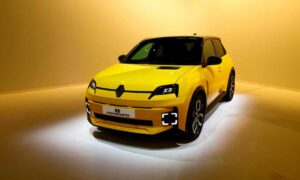
Electric cars make some people afraid of the dark. While the batteries produce much less carbon, they require much more electricity to run. This has prompted ominous warnings that Great Britain and other wealthy countries set on banning new petrol and diesel cars risk plunging their populations into darkness.
In recent months British net zero-sceptical newspapers have warned that the shift to EVs would “risk overwhelming the grid, and threaten catastrophic blackouts” when intermittent sun and wind fail to provide the necessary power. Another article claimed: “It won’t take an enemy power to put us all in the dark – just energy customers doing normal things on a normal winter’s evening.”
Yet many of the people working in the electric car industry think these fears may be misplaced. They argue that the shift to electric cars offers an exciting – and potentially lucrative – chance to build an energy system that is smarter, as well as greener.
Polluting coal-fired power stations have been replaced in the UK mainly by windfarms and solar panels. Those renewables produce zero carbon emissions, but they have an intermittency problem, failing to provide much power on still, cloudy days and nights. Add in the prospect of every new car shifting to electricity by 2035, and it is not outlandish to ask how the grid will maintain the balance between supply and demand.
